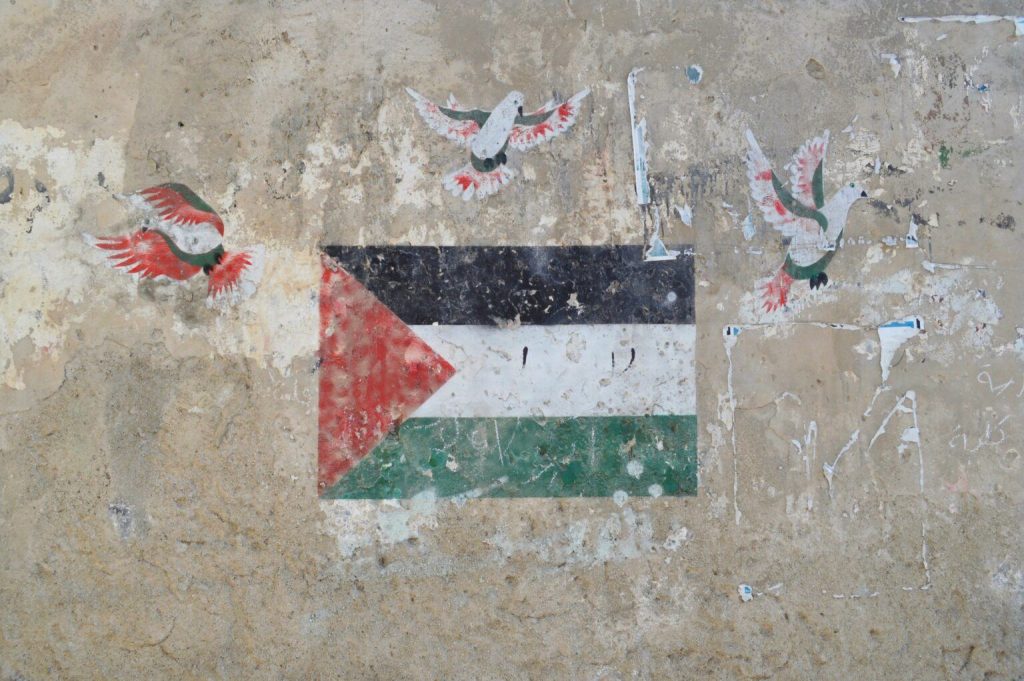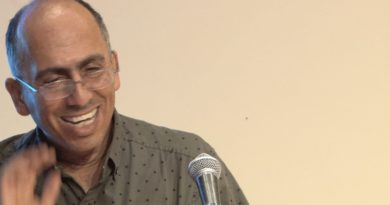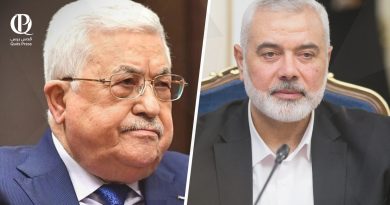From Kristallnacht to Broken Ethics – Jamal Kanj
Last Friday, following the screening of No Other Land in San Diego, I discussed the film with a Jewish attendee who drew a striking comparison between the actions of the Israeli settlers in Palestine and the pogroms once carried out against Jews in Europe. Hence, this op-ed.
In 1938 Nazi Germany, Kristallnacht—the Night of Broken Glass—didn’t come out of nowhere. It was the culmination of years of managed propaganda hate-filled rhetoric. That propaganda didn’t remain in newspapers or speeches—it spilled into the streets as the Hitler Youth and Nazi militias attacked Jewish homes, businesses, and synagogues, looting, burning, killing. German police watched, helped, or did nothing. The message was clear: the system approved.
Nearly a century later, in the hills of the occupied West Bank and the rubble of Gaza, a different but hauntingly familiar racism unfolds—this time with Palestinians as the targets and Jewish Zionist youth, often armed and state-protected, as the perpetrators.
Every day, children in Gaza go to sleep, not knowing if they will wake up alive. Palestinians must maneuver Jewish settlers only roads, and farmers in the West Bank are unsure whether they will return home alive. Armed Jewish mobs storm villages, chop down centuries-old olive trees, destroy water tanks, and set homes ablaze. The Natives are attacked—at times fatally—for daring to remain on their land.
This unchecked aggression is whitewashed by Israeli officials as “confrontations,” as if a farmer attending his crops is on equal footing with settlers in bulletproof vests carrying assault rifles rampaging defenseless Palestinian homes and farms. Language that deliberately obscures the fact that these acts are premeditated, ideologically driven campaigns of terror designed as part of an official Israeli policy to displace the Palestinians in the West Bank and Gaza.
The old adage claims, “sticks and stones may break my bones, but words will never hurt me.” Yet history tells us otherwise. Words—when wielded with the intention to vilify, distort, or dehumanize—can become weapons far more destructive than stones. They don’t simply hurt; they foment hate, foster cruelty, for broken bones, broken lives, and broken humanity.
Just as in Nazi Germany’s portrayal of Jews as subhuman and a threat to national purity, Palestinian existence is today portrayed in large swaths of Israeli political system and media discourse as the “problem” that must be solved. Palestinians are often cast by Western Jewish colonizers as animals, intruders or terrorists for defending their land—even in the towns and villages where they have lived for generations, some towns even predated the original Hebrew tribes’ migration from Mesopotamia.
This narrative eerily echoes the Nazi dehumanization of Jews, which was relentlessly promoted through propaganda that portrayed Jews as vermin, parasites, and enemies of the state. That campaign of demonization paved the way for widespread public complicity in their eventual extermination. In Palestine, the logic is similar: by portraying Palestinians as less than humans, inherently violent, backward, or undeserving of rights, the Israeli state and its settler proxies justify daily brutality with impunity.
And nowhere is this dehumanization more starkly evident than in Gaza. For a year and a half, the Israeli military has subjected over two million Palestinians to starvation, indiscriminate bombing, and total siege. Civilian homes, hospitals, bakeries, and places of worship have been turned to rubble. Food, water, and medicine have been withheld and weaponized. Thousands of children have been buried beneath the ruins. The official Israeli pogrom is a methodical destruction of a people, a genocide carried out under contrived pretexts, cheered on by ideologues, Jewish and Chrisian, who dismiss Palestinian suffering as necessary to fulfill a wicked prophecy.
The moral bankruptcy of this comparison is further exposed when we remember that the international community vowed, after the Holocaust, “Never Again.” Yet today, the descendants of the European victims of that very genocide are presiding over a regime of apartheid, occupation, and settler colonialism that perpetuates the same cycles of dehumanization and state-sanctioned violence.
Still, the words persist—because they prepare the world to accept the unacceptable. They train us to believe that Palestinians deserve less: less life, less freedom, less compassion.
This is how the settler Zionist youth, indoctrinated by a culture of Jewish supremacy, come to see Palestinians as a mere obstacle to be removed. It’s how they justify their acts of terror—uproot centuries-old olive trees, burn cars, torch entire communities. It’s how they come to reflect the very Nazi vigilantes Jews once dreaded and despised.
Just as Kristallnacht was a harbinger of genocide, the ongoing Israeli terror in Gaza and the West Bank signals a dangerous descent into fascism, driven by ethnonationalism, religious supremacy, and impunity. The question is not whether history is repeating itself—but whether we will recognize it before it is too late.
The bitter irony of history is that today’s illegal Jewish colonizers have become a mirror of the very Nazi vigilantes Jews once feared and loathed. Then, it was Jews who were the victims, their humanity stripped away by propaganda and violence. Now, in the hills of the West Bank, it is Palestinians who are vilified, dehumanized, and brutalized by Jewish Zionist youth operating with state protection. What was once unthinkable—that the oppressed might become the oppressors—has become a tragic reality. These youths, many raised in a culture of Jewish supremacy, now reflect the very forces of fascism that Jewish history vowed never to emulate. They became the enemy they hated
So yes, words might not break bones—but they can justify the breaking. They can anesthetize the world to normalize injustice. They can make genocide seem like policy.
And that is precisely why the Zionist propaganda must be challenged—before more glass shatters, before more Palestinian mothers are murdered, before more children are starved, and before history repeats itself yet again under a different flag, a different name, a different supremacy, but the same inhuman face.
*Jamal Kanj is the author of Children of Catastrophe: Journey from a Palestinian Refugee Camp to America, and other books. He writes frequently on Arab world issues for various national and international commentaries.

Image by Ash Hayes.




